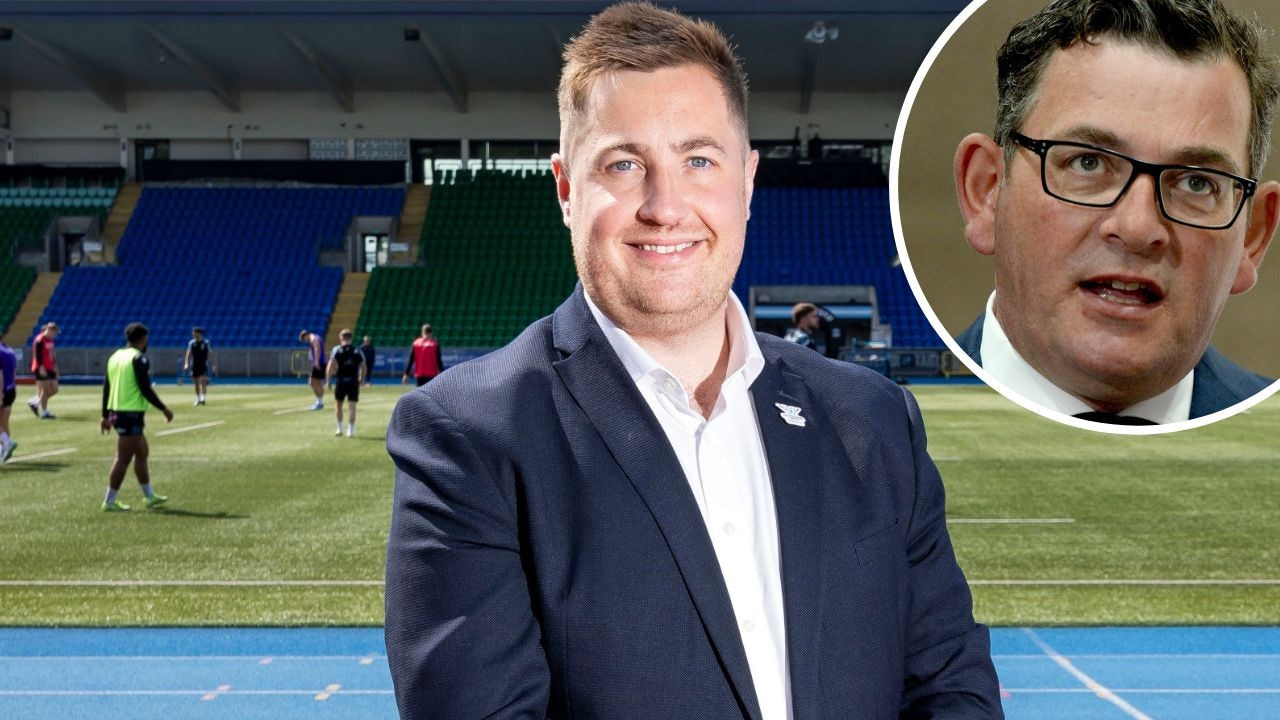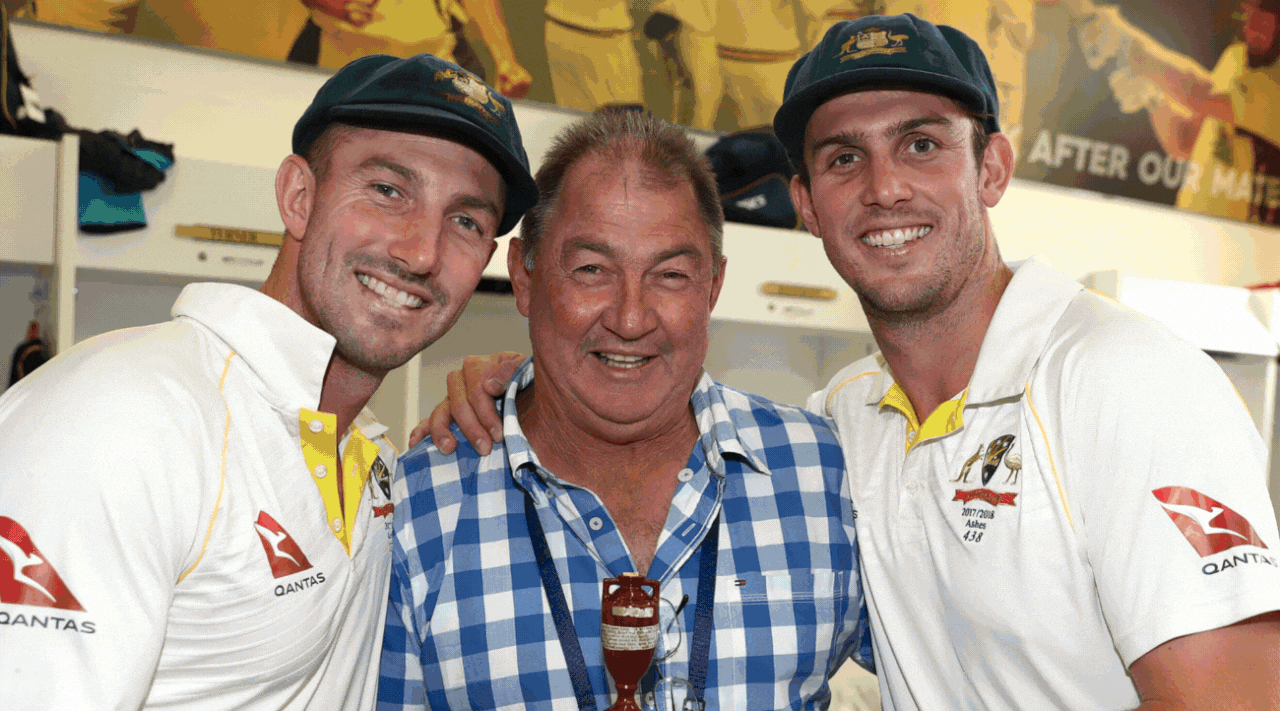Commonwealth Games 2022: Ariarne Titmus, Elijah Winnington and Zac Stubblety-Cook win gold
Ian Thorpe, Grant Hackett ... Zac Stubblety-Cook. Australia’s breaststroke superstar claimed his first Commonwealth Games gold to match a rare record last held by Thorpe and Hackett.
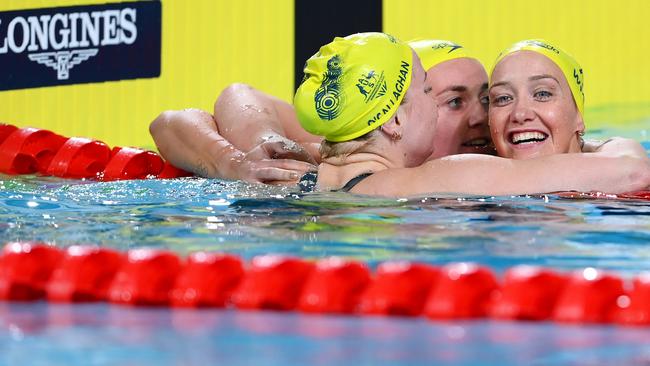
Comm Games
Don't miss out on the headlines from Comm Games. Followed categories will be added to My News.
Sometimes in swimming, it’s just about winning.
So much attention is placed on the times that flash up on the scoreboard but when the best racers are in the thick of the action, the only thing that really counts is who gets their hands on the wall first.
Zac Stubblety-Cook has become a master at that, as he completed his grand slam of swimming crowns with a hard fought win in the 200m breaststroke final at the Commonwealth Games on Saturday morning.
Already the Olympic champion, the world champion and the world record holder, Stubblety-Cook captured the last major title to have eluded him with a gutsy win at the Sandwell Aquatic Centre in Birmingham.
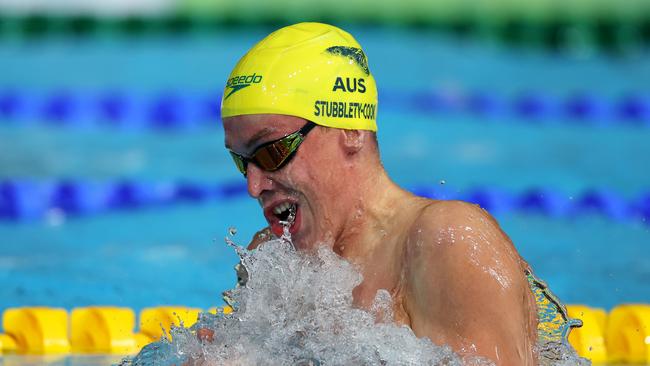
Pushed all the way by England’s James Wilby, the Australian only hit the front for the first time midway down the last lap but that was all he needed as he surged clear to win in 2:08.07, just a tick over a half a second in front of Wilby, who tried to lead all the way before being overhauled at the end.
Australia’s other finalist Matt Wilson finished fourth.
“It felt harder than I thought it would,” Stubblety-Cook said.
“It is a different thing to (Tokyo), you can’t get caught up in expectations.”
Stubblety-Cook’s time was 2.15 seconds outside the world record he set at the Australian trials in May but said he was unsurprised that his batteries were starting to run low after a busy few months that included winning his first world title in Budapest.
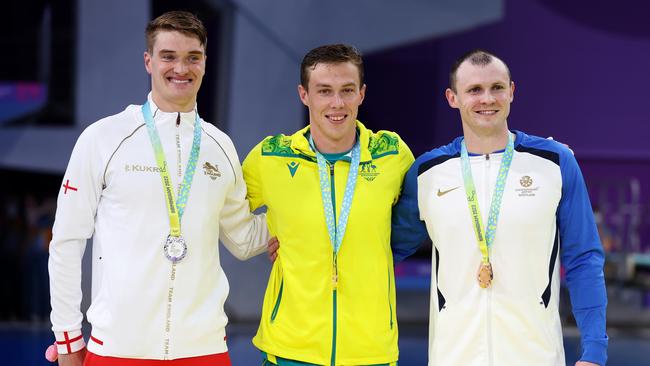
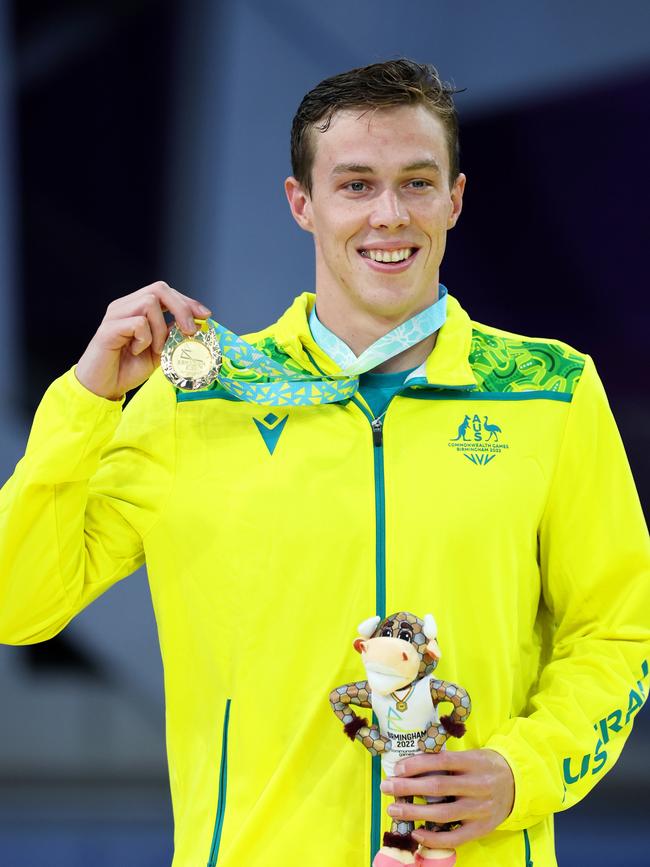
“It is nearly a year to the day since Tokyo now. So it’s been a bit of a wild month,” he said.
“I think this probably means a lot more to me than worlds.
“For me four years ago (at the 2018 Commonwealth Games), I didn’t make the finals.
“So for me coming here tonight was just purely enjoyment and trying to get the best out of myself and it was also a bit of a redemption swim.
“I wanted to come back to it and do the best I could do.”
Stubblety-Cook has quickly emerged as Australia’s most dominant male team member after a whirlwind 12 months.
Just 23, he’s the first Australian man to have swept everything the sport has to offer since Ian Thorpe and Grant Hackett — almost two decades ago.
And he’s done the surprising way — by swimming slower to go faster.
Like golfers who can drive the ball further when they slow down their swings, Stubblety-Cook has increased his speed in the water by reducing the number of strokes he takes in a race and it’s deadly effective.
To the naked eye, breaststroke looks easy but it’s actually one of the most painful strokes in elite swimming, especially in the longer races.
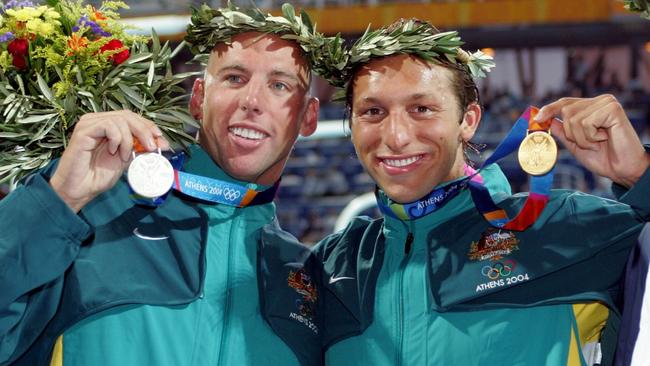
Competitors are in agony over the last lap because their legs fill with turbocharged levels of lactic acid while their lungs gasp for air and the muscles in the arms and shoulders burn.
Stubblety-Cook feels the stinging pain just as much as everyone else but what helps him cope better is his race strategy.
After winning gold in Tokyo, he and his coach Vince Raleigh knew that to finish races faster than anyone else they needed to conserve more energy in the front end so cut five strokes off his race.
“That extra efficiency makes all the difference because when everyone else is fatiguing, I’m maintaining the speed,” Stubblety-Cook said.
“There’s a few parts to it. There’s a bit to do with the turn and a bit to do with the start. I’m definitely a little bit stronger.
“It’s not whether I can do it, it’s how I can do it.
“There’s the start component, this is the time I need to hit, this is my goal time, this is the front end, the back end, how many strokes, my stroke rate, everything.”
Titmus survives scare from Aussie teen freak
Ariarne Titmus has a new challenger as Australia’s 200m freestyle queen after rising teen sensation Mollie O’Callaghan pushed her wall the way in the final of the event at the Commonwealth Games.
Titmus posted the eighth fastest time in history to win the race – stopping the clock at 1:53.89 – but only just held on to beat her fast -finishing teammate, who touched in 1:54.01.
Madi Wilson completed an Australian sweep of the medals when she finished third (1:56.17) to replicate the Aussie men in the 400m freestyle in the first event of the night. In that race it was Elijah Winnington who led home Sam Short and Mack Horton.
Those races set the scene for Zac Stubblety-Cook who powered home to win the 200m breastroke and complete what has been dubbed the “swim slam”.
But the battle for gold in the women’s 200m women’s freestyle was the race of the night and it was between two swimmers who are both trained by Dean Boxall.
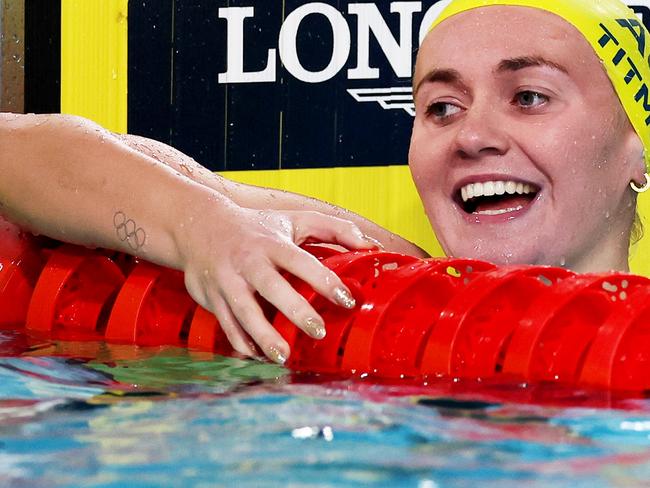
Already the Olympic champion in the four-lap race but not the Commonwealth champion, Titmus was expected to challenge Italian Federica Pellegrini’s longstanding world record of 1:52.98 after breaking Katie Ledecky’s 400m world record two months ago.
She was under world record pace for the first lap but never again as her biggest concern quickly became holding off O’Callaghan, the rising star of the team who won six medals at last month’s world championships in eastern Europe, which Titmus skipped.
“Mollie has been killing it in training, she is young, feisty, hungry. I knew she would be there,” Titmus told Channel 7.
“It is fun to have a race. But I’m pretty happy with the time considering the prep I have had.
“I love it that we are in a country where we have depth like this, there will always be someone there. There’s always someone coming through. That makes the sport exciting.”
Winnington, the newly-crowned world champion added the Commonwealth Games 400m freestyle title to his growing list of accomplishments.
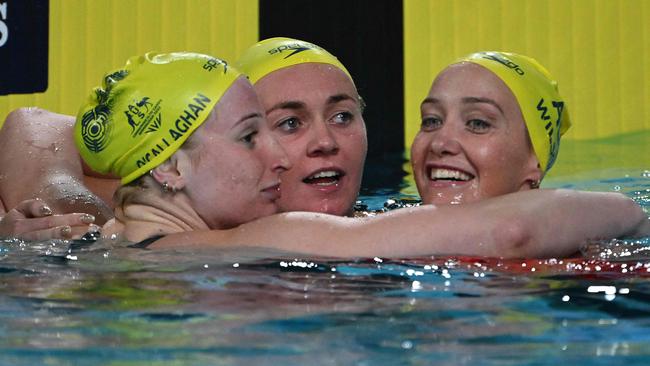
Leading from start to finish, the 22-year-old Winnington surged clear of his rivals to win in a time of 3:43.06 after being under world record pace for the first 300m, leading an Australian sweep of the medals at the Sandwell Aquatic Centre.
Mack Horton, who has already won Olympic and Commonwealth golds, collected the bronze in 3:46.49 but it was the performance of rising teenage star Sam Short that set tongues wagging as he took the silver in 3:45.07
“I just want to do it again it already,” 18-year-old Short said. “It definitely has not sunk in. It was my first international final.
“I was just stoked to race with the big dogs. I was next to the former Olympic champ. I was in the race with the world champ and Europeans I’ve never raced before in my life. So I was just excited to be around them.
“I knew I could do it. I trained for it. I knew I had to back myself and I stick to my race plan and it paid off today.
“I just wanted to put myself in the mix. I think I’m the youngest in the field there.
“It’s given me a new reason to keep training. I’ve never stayed in a village environment before. This is all new to me. This whole media thing like everything is new. And I just want to do it again and again and again.”
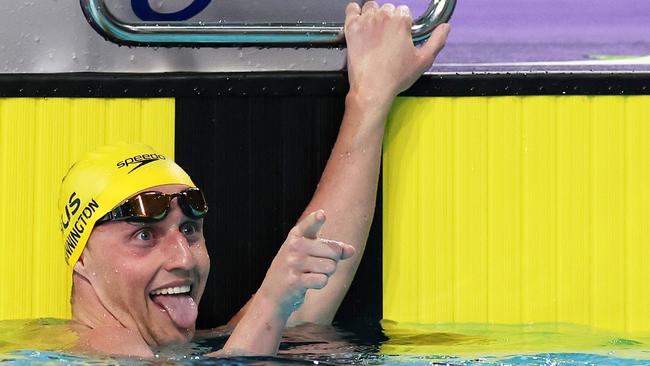
Winnington had set the fastest time in the world for a decade when he won the world title last month but the challenge of three big meets in a row – the national trials, world titles, and now Commonwealth Games – took the edge off him over the last 100m, even though his time would have won the Olympic gold medal at Tokyo last year.
“I’ve mentioned a couple of times, it’s pretty hard coming off the back of world championships just a month ago and refocusing to train again and to get myself up to that,” he said.
“Today was about a race. And that’s what I went out there to do. I wasn’t focused on time or anything like that. So I took them out hard and played to my strategy and it paid off. That’s always sort of the way I swim it.
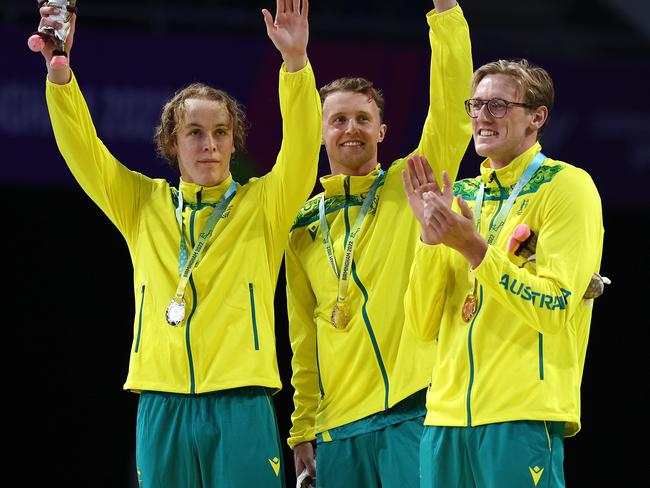
“When I have a bit more work behind me, like I mentioned, without having that break up with worlds last time, it’ll be a lot faster and that’s where, you know, I’ll drop that significant time.
“It’s pretty hard being the hunted. But having that world record there (3:40.07) means I’m still the hunter so I’ve got something to chase. I made it number one, but I’m always striving for better.”
Horton was disappointed with his time but pleased to get back on the podium for his first individual medal since the 2019 world championships.
“I’m grateful for the medal but I think really for me at this point it’s more about process rather than the actual outcome,” the 2016 Olympic champion said.
“I’m frustrated with that. I’ve been training pretty well but I can’t get it out in a race yet so I’m happy with the medal but that time was pretty average.”
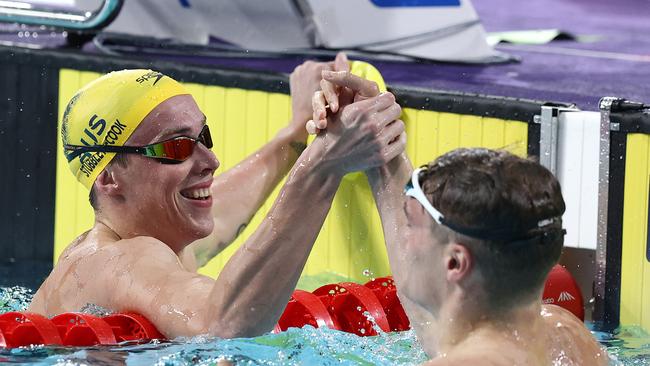
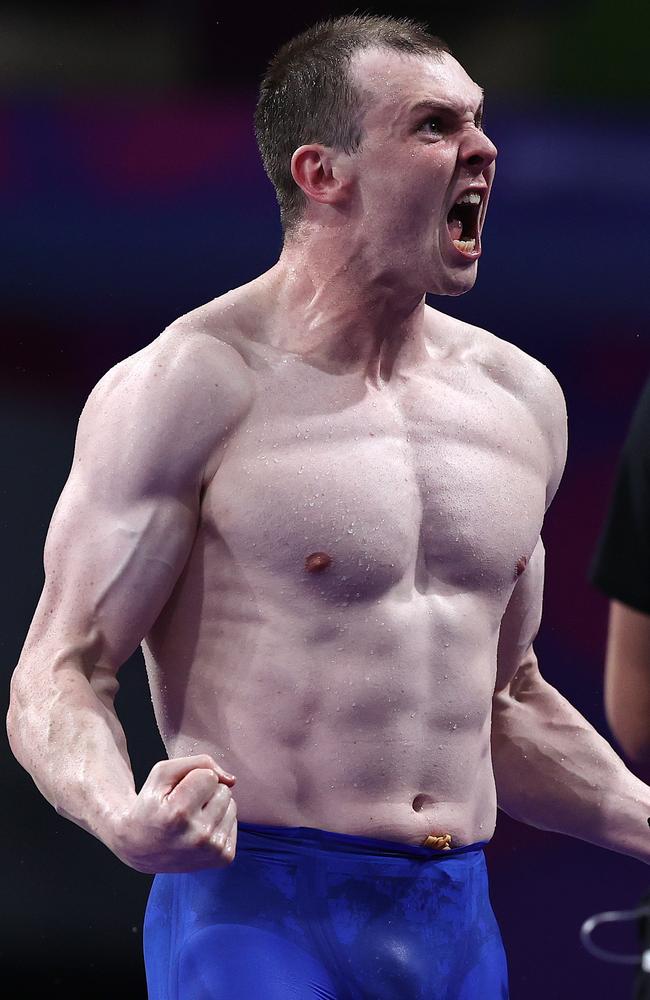
STUBBLETY-COOK EMULATING THORPE, HACKETT HEROICS
Julian Linden
Sometimes in swimming, it’s just about winning.
So much attention is placed on the times that flash up on the scoreboard but when the best racers are in the thick of the action, the only thing that really counts is who gets their hands on the wall first.
Zac Stubblety-Cook has become a master at that, as he completed his grand slam of swimming crowns with a hard fought win in the 200m breaststroke final at the Commonwealth Games on Saturday morning.
Already the Olympic champion, the world champion and the world record holder, Stubblety-Cook captured the last major title to have eluded him with a gutsy win at the Sandwell Aquatic Centre in Birmingham.

Pushed all the way by England’s James Wilby, the Australian only hit the front for the first time midway down the last lap but that was all he needed as he surged clear to win in 2:08.07, just a tick over a half a second in front of Wilby, who tried to lead all the way before being overhauled at the end.
Australia’s other finalist Matt Wilson finished fourth.
“It felt harder than I thought it would,” Stubblety-Cook said.
“It is a different thing to (Tokyo), you can’t get caught up in expectations.”
Stubblety-Cook’s time was 2.15 seconds outside the world record he set at the Australian trials in May but said he was unsurprised that his batteries were starting to run low after a busy few months that included winning his first world title in Budapest.


“It is nearly a year to the day since Tokyo now. So it’s been a bit of a wild month,” he said.
“I think this probably means a lot more to me than worlds.
“For me four years ago (at the 2018 Commonwealth Games), I didn’t make the finals.
“So for me coming here tonight was just purely enjoyment and trying to get the best out of myself and it was also a bit of a redemption swim.
“I wanted to come back to it and do the best I could do.”
Stubblety-Cook has quickly emerged as Australia’s most dominant male team member after a whirlwind 12 months.
Just 23, he’s the first Australian man to have swept everything the sport has to offer since Ian Thorpe and Grant Hackett — almost two decades ago.
And he’s done the surprising way — by swimming slower to go faster.
Like golfers who can drive the ball further when they slow down their swings, Stubblety-Cook has increased his speed in the water by reducing the number of strokes he takes in a race and it’s deadly effective.
To the naked eye, breaststroke looks easy but it’s actually one of the most painful strokes in elite swimming, especially in the longer races.
Competitors are in agony over the last lap because their legs fill with turbocharged levels of lactic acid while their lungs gasp for air and the muscles in the arms and shoulders burn.
Stubblety-Cook feels the stinging pain just as much as everyone else but what helps him cope better is his race strategy.
After winning gold in Tokyo, he and his coach Vince Raleigh knew that to finish races faster than anyone else they needed to conserve more energy in the front end so cut five strokes off his race.
“That extra efficiency makes all the difference because when everyone else is fatiguing, I’m maintaining the speed,” Stubblety-Cook said.
“There’s a few parts to it. There’s a bit to do with the turn and a bit to do with the start. I’m definitely a little bit stronger.
“It’s not whether I can do it, it’s how I can do it.
“There’s the start component, this is the time I need to hit, this is my goal time, this is the front end, the back end, how many strokes, my stroke rate, everything.”



